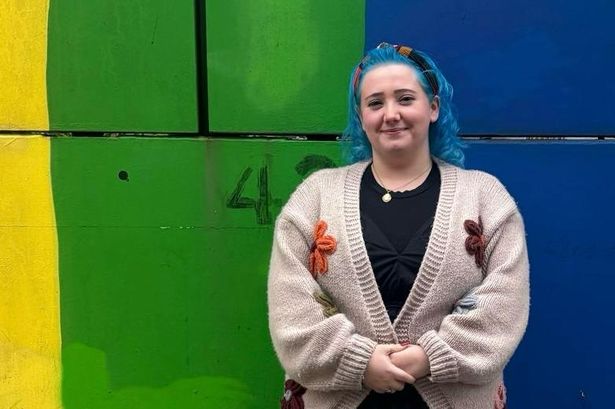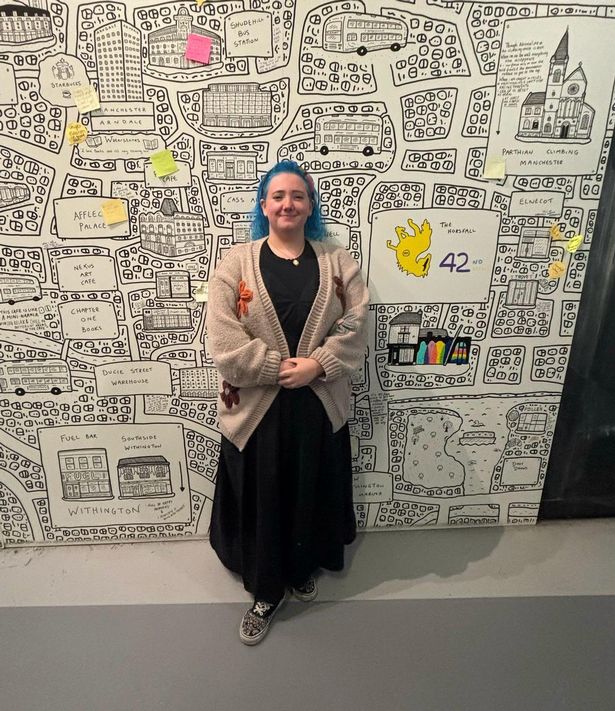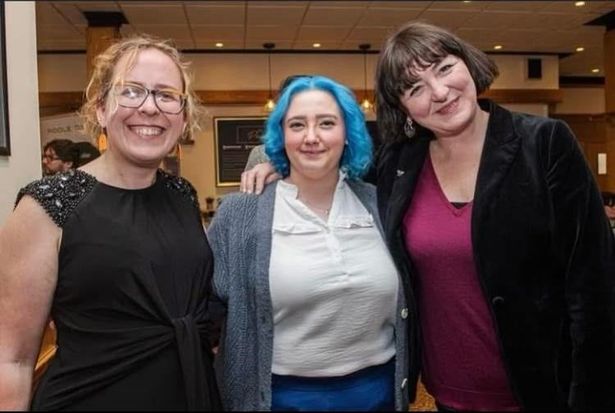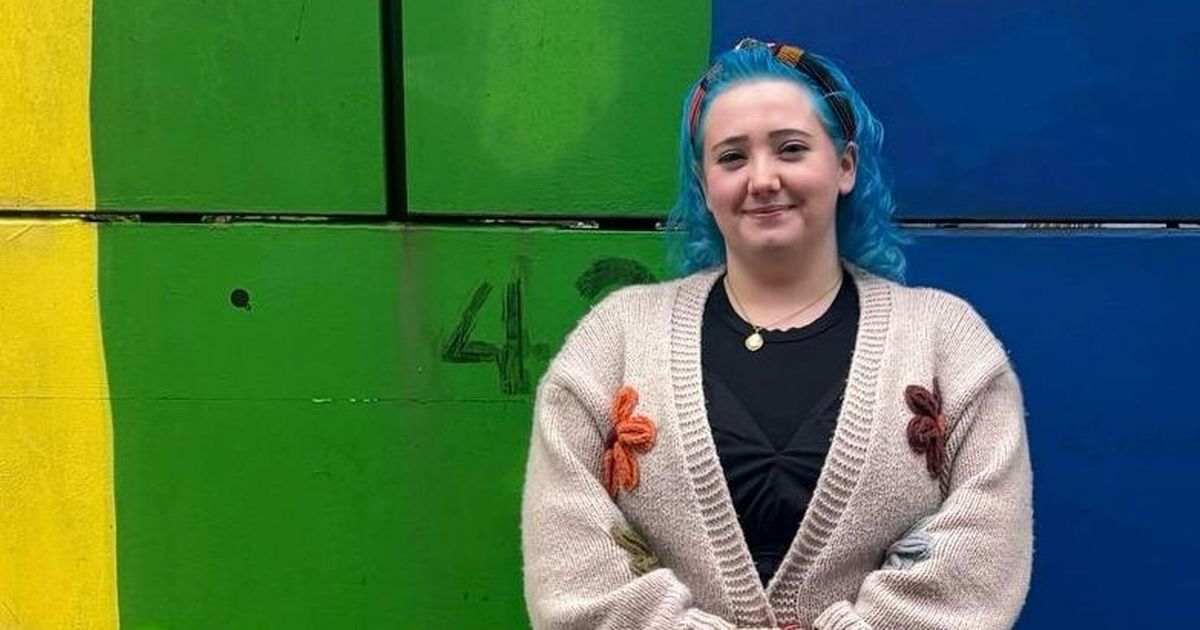Georgia turned her life around and is now helping others do the same Georgia Sweeney had a bad experience with her first job, completely knocking her confidence(Image: Georgia Sweeney)
Georgia Sweeney had a bad experience with her first job, completely knocking her confidence(Image: Georgia Sweeney)
Like many young people in Greater Manchester, Georgia Sweeney struggled with her first foray into the world of work.
At 17, she became an apprentice at an insolvency firm while continuing to study at college where she was retaking her English GCSEs. But when she started the job, the teenager from Collyhurst discovered that she had replaced a student who was in his mid-twenties.
“They expected me to have a lot of skills that I just didn’t have and I don’t think the average 17-year-old would have,” she said.
After sticking it out for seven months, Georgia parted ways with the company, leaving with her confidence knocked.
“It got to the point where I didn’t want to get out of bed and I didn’t want to go to work anymore,” she said.
“It warped the way I felt about working and the working world in general. I got really upset so I said I can’t do this anymore.”
Join the Manchester Evening News WhatsApp group HERE
As a carer for her mum, Georgia could not do a 9-to-5 job, but her experience as an apprentice put her off office work altogether.
Georgia did find other jobs including seasonal work, but was suffering from anxiety and depression which was holding her back.
That’s when she starting going to 42nd Street, a mental health charity that works with young people across Greater Manchester.
The organisation helped Georgia to combat her social anxiety through therapy sessions and to build up her confidence again.
She started going to night school and took adult education courses as well as joining a women’s group at 42nd Street.
At 25, she now runs that group as part of her job as a youth worker, helping others who have been in a similar situation.
 Georgia, 25, now works for 42nd Street(Image: Georgia Sweeney)
Georgia, 25, now works for 42nd Street(Image: Georgia Sweeney)
In that role, which she got after being offered an internship at the charity, she often meets young people struggling to find work.
But for some of those lucky enough to find work, the costs associated with it are deemed too ‘expensive’, according to Georgia.
“I constantly hear young people say ‘I’ve applied for 100 jobs and you never hear anything back, not even a rejection’, she explained.
“Some people just say they can’t afford it. If they get paid the minimum wage, that doesn’t cover their bills or rent.
“If they lose their job they could lose their benefits. They might have some mental health problems and work could make it worse.
“Young people do want to work,” she added. “But everything’s getting more expensive and wages aren’t always keeping up with that.”
 Georgia with 42nd Street CEO Simone Spray (right)(Image: 42nd Street)
Georgia with 42nd Street CEO Simone Spray (right)(Image: 42nd Street)
According to analysis by the People’s Health Trust, young people in the North West are three times more likely to be unemployed that working age people as a whole with 16 to 24-year-olds currently accounting for 40 per cent of unemployed people across the region.
The health equity charity has also found that those aged 16 to 34 with a mental health condition are almost five times more likely to be economically inactive than their peers without a mental health condition.
As part of the People’s Health Trust’s Good Work for Young People’s Mental Health programme, 42nd Street has been given a grant to help remove barriers faced by young people in Greater Manchester, and help them to secure, meaningful employment opportunities.
In a ‘pioneering approach’ that could be rolled out across the country, 42nd Street will offer specialist employment support, known as Individual Placement and Support, which has proven to be effective in helping people with severe mental health difficulties into work.
Chief executive of 42nd Street, Simone Spray, said: “We have been hearing for many years from young people seeking support for their mental health, that they really want to find good places to work where they can build their skills and a secure future, so we are delighted that the model will allow young adults to have a voice and shape what will work the best for them and for employers. There are so many exciting opportunities in Greater Manchester, especially in the creative and digital space – we can’t wait to get started!”
People’s Health Trust’s Chief Executive, John Hume, said: “Young people deserve the very best of starts to their adult lives. What many have told us is that this is far from the reality. Many feel confined to a life of anxiety and worsening mental issues with no prospects of finding good work. Our programme will provide the very best of support to young people in Manchester with mental health problems, whilst hopefully demonstrating both a cost-effective way of helping to reduce mental health problems and supporting young people into meaningful work and positive future.”
